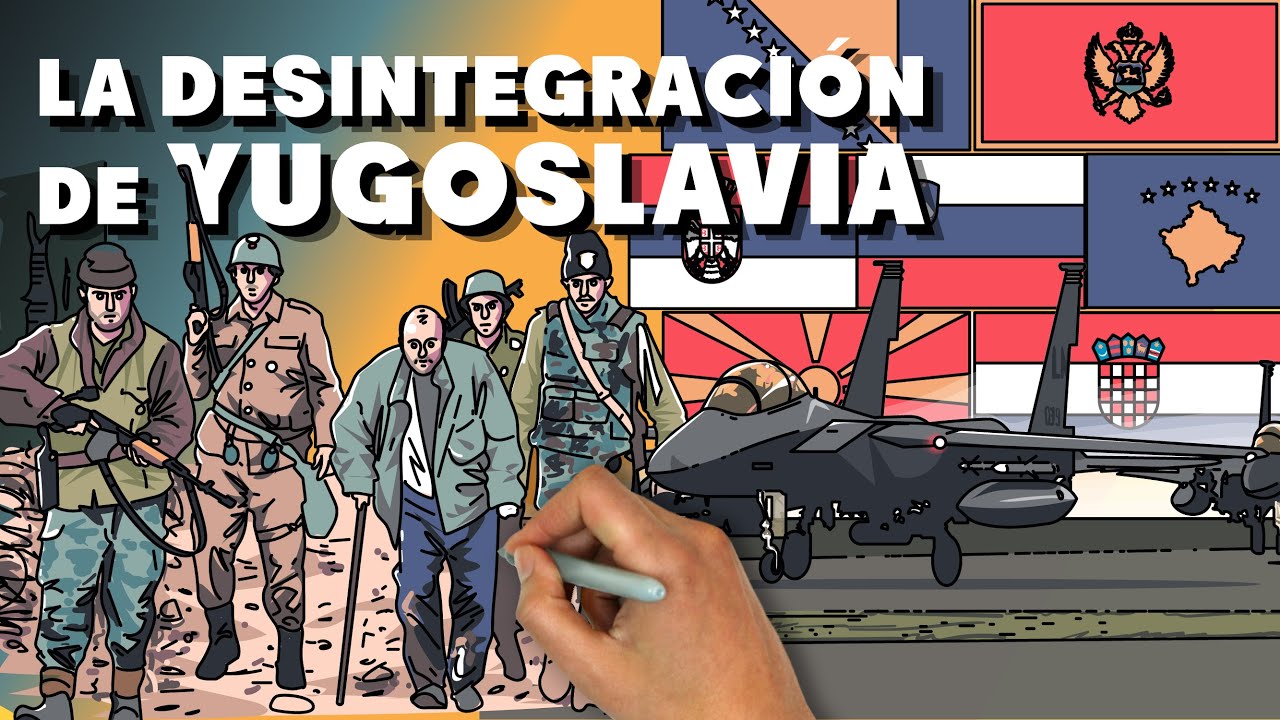16 June 2025
Summary
TLDRThe speaker reflects on the political and cultural divisions in Yugoslavia, which broke into separate countries after a series of civil wars. They contrast this with their experience in Indonesia, where diversity is celebrated under the national motto 'Unity in Diversity.' The speaker shares their personal journey of moving to Indonesia, becoming a citizen in 2017, and feeling a deep sense of belonging. They express pride in Indonesia’s unity despite differences and highlight how the country’s warmth and inclusivity make them feel truly at home.
Takeaways
- 😀 The speaker was born in 1987, during the time when Yugoslavia was a single country composed of six republics: Serbia, Montenegro, Croatia, Macedonia, Bosnia, and Slovenia.
- 😀 Yugoslavia broke up due to political reasons, leading to civil wars and the eventual independence of its republics, including Serbia and Montenegro.
- 😀 The speaker expresses regret over the breakup of Yugoslavia, particularly for younger generations who cannot understand why the civil wars happened.
- 😀 After the breakup, the speaker experienced a sense of division within the former Yugoslavia, with people identifying more with their new countries like Serbia, Montenegro, or Yugoslavia itself.
- 😀 The speaker praises Indonesia for its unity, emphasizing the national motto 'Bhinneka Tunggal Ika' (Unity in Diversity) and how Indonesia has successfully maintained unity despite its diversity.
- 😀 Indonesia's inclusivity and welcoming attitude stood in stark contrast to the speaker's previous experiences in Europe, where foreigners often feel out of place.
- 😀 The speaker became an Indonesian citizen in 2017, seeing it as a significant and special moment for themselves and their family.
- 😀 The speaker made the conscious decision to make their children Indonesian citizens, choosing not to give them passports from other countries, such as Montenegro or Malaysia.
- 😀 The speaker feels deeply at home in Indonesia, appreciating the friendly and welcoming nature of the people and the strong sense of community.
- 😀 The speaker views Indonesia's large stadiums, excellent football prospects, and thriving clubs as an untapped area of potential that Europeans might overlook.
- 😀 Overall, the speaker expresses immense pride in being Indonesian and values the sense of togetherness and unity that the country upholds despite its diversity.
Q & A
What was Yugoslavia, and why was it significant for the speaker?
-Yugoslavia was a country that existed until the early 1990s, comprising six republics: Serbia, Montenegro, Croatia, Macedonia, Bosnia and Herzegovina, and Slovenia. The speaker is reflecting on the historical importance of Yugoslavia, which eventually broke up into smaller nations due to political and civil conflicts.
What does the speaker regret about the breakup of Yugoslavia?
-The speaker regrets the division of Yugoslavia, particularly the civil wars that followed, as it resulted in economic struggles for the newly formed countries. They feel that if Yugoslavia had stayed united, the countries might have been stronger economically today.
What does the speaker appreciate about Indonesia's unity?
-The speaker values Indonesia's unity in diversity, symbolized by the national motto 'Bhinneka Tunggal Ika,' meaning 'Unity in Diversity.' Despite the many differences in religion, ethnicity, and language, Indonesia is united under one flag, the red and white.
How did the speaker's view of Indonesia change after arriving?
-Initially unsure about moving to Indonesia, the speaker was impressed by the country's football infrastructure and the warmth of its people. Over time, they felt at home and developed a strong sense of belonging.
What made the speaker decide to become an Indonesian citizen?
-The speaker decided to become an Indonesian citizen in 2012, after several years of feeling at home in the country. They were particularly moved by the friendliness and hospitality of the Indonesian people.
Why does the speaker want their children to have only Indonesian citizenship?
-The speaker wants their children to be 100% Indonesian, despite having the option to hold other passports, because they feel deeply connected to the country and its values.
How does the speaker compare their experience in Indonesia to their experience in Europe?
-In contrast to Europe, where the speaker would feel like a foreigner, Indonesia made them feel welcomed and accepted from the beginning. They emphasize the openness and friendliness of the people, which made them feel like a local.
What does the speaker believe about the future of Indonesia?
-The speaker expresses a strong desire for Indonesia to remain unified and strong, and they are proud of the country's unity despite its diversity. They hope that Indonesia will continue to thrive and prosper.
What is the significance of the speaker's citizenship ceremony in 2017?
-The speaker considers their citizenship ceremony in 2017 a very special moment for themselves and their family, marking their official integration into Indonesian society.
What lessons does the speaker draw from their experience in Yugoslavia and Indonesia?
-The speaker highlights the importance of unity and shared identity, drawing a contrast between the division and conflict in Yugoslavia and the peaceful coexistence in Indonesia. They emphasize the value of coming together despite differences for a stronger, more harmonious society.
Outlines

このセクションは有料ユーザー限定です。 アクセスするには、アップグレードをお願いします。
今すぐアップグレードMindmap

このセクションは有料ユーザー限定です。 アクセスするには、アップグレードをお願いします。
今すぐアップグレードKeywords

このセクションは有料ユーザー限定です。 アクセスするには、アップグレードをお願いします。
今すぐアップグレードHighlights

このセクションは有料ユーザー限定です。 アクセスするには、アップグレードをお願いします。
今すぐアップグレードTranscripts

このセクションは有料ユーザー限定です。 アクセスするには、アップグレードをお願いします。
今すぐアップグレード5.0 / 5 (0 votes)






